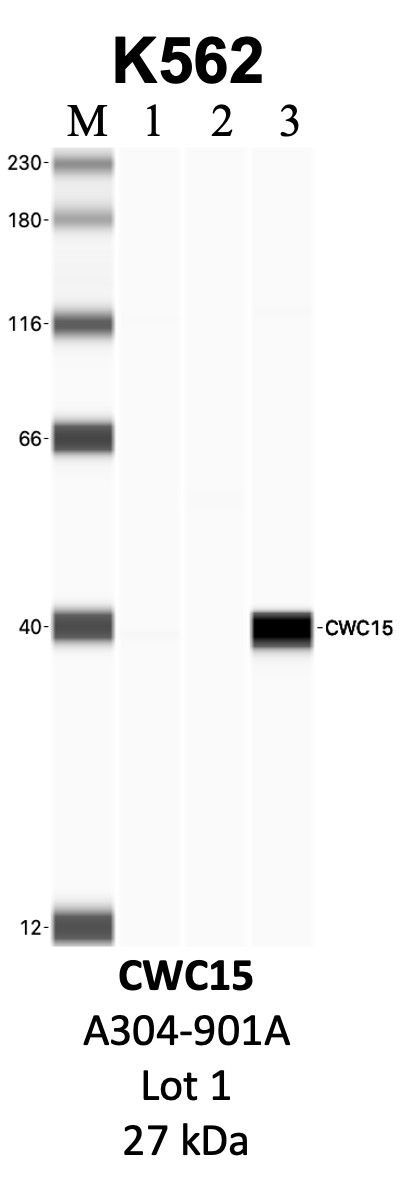| K562 | 
Caption: IP-WB analysis of K562 whole cell lysate using the CWC15 specific antibody, A304-901A. Lanes 1 and 2 are 2.5% of five million whole cell lysate input and 50% of IP enrichment, respectively, using a normal IgG antibody. Lane 3 is 50% of IP enrichment from five million whole cell lysate using the CWC15-specific antibody, A304-901A. The same antibody was used to detect protein levels via Western blot. This antibody passes preliminary validation and will be further pursued for secondary validation. *NOTE* Protein sizes are taken from Genecards.org and are only estimates based on sequence. Actual protein size may differ based on protein characteristics and electrophoresis method used. Comments: Immunoprecipitation lane (3) exhibits a large deviation from the expected protein size, which we believe is due to performing the characterization using the Jess Western Blotting system. This system has a documented tendency for some proteins to run differently than with more traditional methods due to their compositions and interactions with the electrophoretic components. Method: immunoprecipitation Status: Released Lab: Yeo Lab | 
Caption: Western blot following CRISPR against CWC15 in K562 whole cell lysate using CWC15 specific antibody. Lane 1 is a ladder, lane 2 is K562 non-targeting control knockdown, lane 3 and 4 are two different CRISPR against CWC15. CWC15 protein appears as the green arrow, Beta-actin serves as a control and appears in red arrow. Releated Sample: BGKcLV28-53 Status: Experimented Lab: Graveley Lab |
|---|